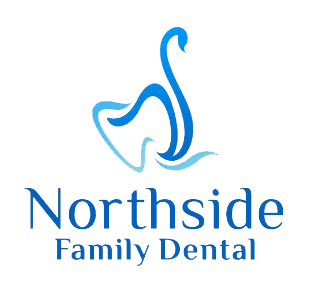Being aware of dental emergencies and taking care of your teeth are important for avoiding pain and long-lasting harm. Dental emergencies can happen suddenly, causing a lot of pain and needing immediate care. Dentist in Lakeland complete dental services in Lakeland, making sure that people can get quick and efficient treatment when emergencies happen. Their dedication to oral health reduces the dangers linked to dental problems, improving the overall health of the community.
What Are Dental Emergencies?
Dental emergencies are oral health problems that need immediate attention to relieve severe pain, stop bleeding, or prevent losing a tooth. These situations often happen unexpectedly and can greatly affect daily activities and overall well-being.
Common causes of dental emergencies include:
- Accidents or Trauma: Injuries from sports, falls, or car accidents resulting in broken or knocked-out teeth.
- Severe Tooth Pain: Usually caused by untreated cavities, infections, or abscesses.
- Swollen Gums: Sometimes indicating an infection that requires immediate care.
- Broken Dental Work: Damaged crowns, bridges, or fillings causing discomfort and functional problems.
Knowing about these emergencies helps us understand when we need to seek immediate care. It’s important to have a dentist in Lakeland who can quickly handle these urgent situations to reduce long-term damage and pain.
Preventing Dental Emergencies: Tips for a Healthy Smile
- Daily Practices for a Bright Smile
Maintaining impeccable oral hygiene is crucial in preventing dental emergencies. Key daily habits include:
- Brushing Twice a Day: Use fluoride toothpaste and brush for at least two minutes. Ensuring you reach every surface of your teeth helps remove plaque and bacteria that can cause decay and gum disease.
- Flossing Regularly: Flossing once a day removes food particles and plaque from between the teeth and under the gumline, areas that a toothbrush can’t reach.
- Using Mouthwash: An antimicrobial mouthwash can help reduce bacteria in the mouth, decreasing the risk of periodontal disease and cavities.
Incorporating these habits into your daily routine significantly reduces the likelihood of encountering severe dental issues, keeping your smile healthy and bright.
- Regular Check-Ups with a Lakeland Dentist
Routine visits to your Lakeland dentist are essential for maintaining optimal oral hygiene and reducing the risk of dental emergencies. By scheduling regular check-ups, potential issues such as cavities, gum disease, and other oral health problems can be identified early before they escalate into more serious conditions.
During these visits, dentists perform thorough cleanings, exams, and may offer preventive care services like fluoride treatments or sealants. These proactive measures help in maintaining dental hygiene and ensuring a healthy smile.
- Choosing Safe Snacks and Staying Hydrated
Maintaining good dental hygiene practices is crucial in reducing the risk of emergencies. When it comes to snacks, it’s important to avoid foods that can damage your teeth. Sugary treats and acidic beverages can lead to tooth decay and enamel erosion.
Tips for Choosing Safe Snacks:
Opt for fresh fruits like apples or pears instead of candies.
Choose cheese and yogurt, which are beneficial for teeth.
Nuts, in moderation, provide nutrients without harming enamel.
Staying Hydrated:
Water is the best choice for hydration as it helps wash away food particles and bacteria, keeping your mouth clean and healthy. Avoid sugary drinks like sodas and fruit juices that can contribute to cavities.
Lifestyle Choices That Affect Your Oral Health
- The Dangers of Constant Snacking
Frequent snacking presents a significant risk to dental health. Each time you eat, food particles linger in your mouth, feeding the bacteria that live there. These bacteria produce acids as a byproduct, which can erode tooth enamel and lead to cavities.
How Snacking Contributes to Cavity Formation:
- Continuous Acid Production: With constant snacking, especially on sugary or starchy foods, your teeth are exposed to a near-constant stream of acid attacks.
- Limited Saliva Production: Saliva helps neutralize acids and wash away food particles. When you snack frequently, your mouth might not produce enough saliva to counteract the effects.
- Increased Bacterial Activity: More frequent food intake means more fuel for bacteria, leading to an increased chance of plaque buildup and subsequent cavities.
- Considering these points, it’s clear that avoiding constant snacking is crucial for maintaining oral health.
- Making Smart Snack Choices for Your Teeth
While reducing the frequency of snacking is important, choosing the right types of snacks can also make a significant difference in your oral health.
- Healthier Snack Alternatives: Fresh Fruits and Vegetables: Crunchy options like apples and carrots help clean teeth while providing essential nutrients.
- Cheese and Dairy Products: These increase saliva production and provide calcium, which strengthens tooth enamel.
- Nuts and Seeds: High in protein and low in sugar, they are less likely to contribute to cavity formation.
Selecting snacks wisely ensures that you satisfy cravings without compromising your dental health.
Understanding how lifestyle choices impact oral health allows you to make informed decisions that promote a healthier smile.
- Making Smart Snack Choices for Your Teeth
Choosing the right snacks can significantly impact your oral health. Here are some healthier alternatives to satisfy cravings without compromising dental well-being:
- Fresh Fruits and Vegetables: Apples, carrots, and celery help clean teeth while providing essential nutrients.
- Nuts and Seeds: Almonds, walnuts, and sunflower seeds offer a protein-packed option that supports overall health.
- Dairy Products: Cheese and yogurt are not only calcium-rich but also help neutralize acids in the mouth.
- Water: Hydrating with water instead of sugary drinks prevents decay and keeps saliva production optimal.
Avoiding tobacco is crucial as it increases the risk of gum disease and other severe oral health issues.

When to Seek Dental Care: Knowing When It’s an Emergency
Recognizing the signs of a dental emergency can be crucial for maintaining optimal oral health. Here are some common indicators that you need immediate dental attention:
- Severe toothache: Persistent and intense pain can signal an underlying issue that requires prompt evaluation.
- Broken or chipped teeth: Teeth that have been damaged due to accidents or injuries should be addressed quickly to prevent further complications.
- Knocked-out tooth: Immediate action is necessary to increase the chances of saving the tooth.
- Bleeding or swollen gums: Unexplained bleeding or swelling could indicate infections or gum disease.
- Lost fillings or crowns: Losing these protective coverings can expose your teeth to damage and decay.
Understanding Preventive Care Services Offered by North Lake Dentist
Preventive care plays a vital role in avoiding dental emergencies. Regular visits to North Lake Dentist ensure early detection and management of potential issues. Here are some key services provided:
Cleanings and exams: Routine cleanings help remove plaque and tartar build-up, while comprehensive exams identify early signs of problems such as cavities, gum disease, and oral cancer.
- X-rays: These imaging services help in diagnosing hidden issues not visible during a regular exam.
- Fluoride treatments: Strengthening tooth enamel through fluoride applications helps in preventing decay.
- Sealants: Protective coatings applied to the chewing surfaces of back teeth prevent cavities in vulnerable areas.
Regular dental check-ups are essential for preventive care, reducing the risk of sudden dental emergencies by addressing issues before they escalate. North Lake Dentist offers a full spectrum of services designed to keep your smile healthy and radiant.
Conclusion: Taking Charge of Your Oral Health Journey with North Lake Dentist
Prioritizing oral health is essential for reducing the risk of dental emergencies. By maintaining good hygiene practices such as brushing twice a day, flossing regularly, and choosing safe snacks, you can ensure a healthy smile. Regular visits to North Lake Dentist provide an extra layer of protection, allowing potential issues to be identified before they escalate.
Take charge of your oral health today! Schedule an appointment with North Lake Dentist to experience comprehensive family dental care services. Protect your smile and reduce the risk of emergencies by seeking professional care and adopting a proactive approach to oral health.
Frequently Asked Questions
What constitutes a dental emergency?
A dental emergency includes any situation that involves severe pain, bleeding, or trauma to the teeth, gums, or jaw. Examples include broken or knocked-out teeth, severe toothaches, and injuries that cause bleeding in the mouth.
How can I handle a knocked-out tooth?
Act quickly: Rinse the tooth gently without scrubbing it.
Reinsert if possible: Try to place the tooth back into its socket.
Store properly: If reinsertion isn't possible, keep the tooth in milk or saline solution.
Seek immediate care: Visit your dentist as soon as possible.
What should I do if I have a dental abscess?
Dental abscesses are serious infections that require prompt treatment. Rinse your mouth with warm salt water to alleviate pain and reduce swelling temporarily. Contact your dentist right away for appropriate care.
Can I prevent dental emergencies?
Yes, preventive measures such as maintaining good oral hygiene, avoiding hard foods, and using protective gear during sports can significantly reduce the risk of dental emergencies.
Are over-the-counter pain medications effective for dental pain?
Over-the-counter pain relievers like ibuprofen can help manage dental pain temporarily. However, they are not a substitute for professional treatment.
How often should I visit my dentist for check-ups?
Routine check-ups every six months are recommended to ensure any potential issues are caught early and managed effectively.
By understanding these frequently asked questions about dental emergencies and oral health care, you can better prepare yourself for unexpected situations while maintaining optimal oral health.


